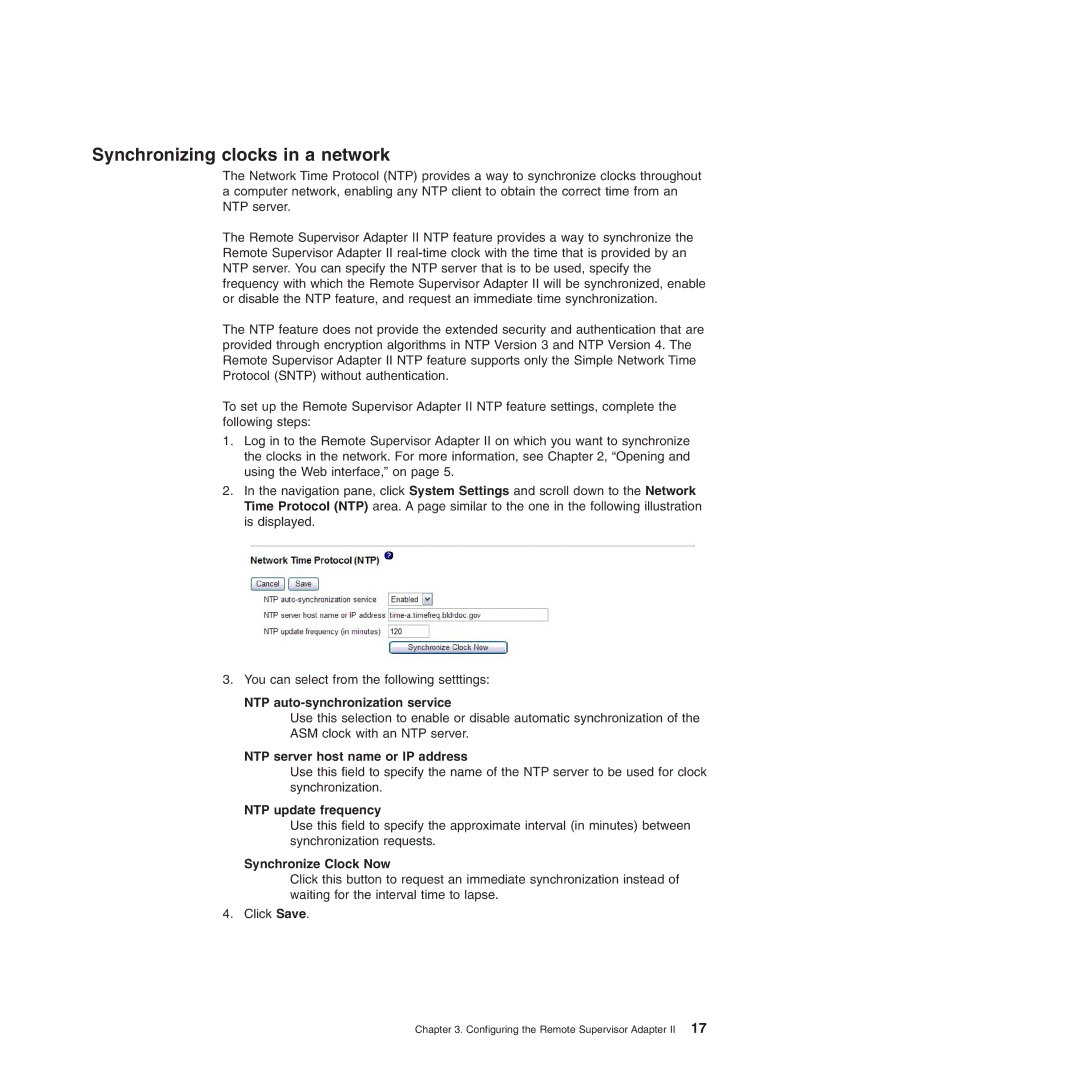
Synchronizing clocks in a network
The Network Time Protocol (NTP) provides a way to synchronize clocks throughout a computer network, enabling any NTP client to obtain the correct time from an NTP server.
The Remote Supervisor Adapter II NTP feature provides a way to synchronize the Remote Supervisor Adapter II
The NTP feature does not provide the extended security and authentication that are provided through encryption algorithms in NTP Version 3 and NTP Version 4. The Remote Supervisor Adapter II NTP feature supports only the Simple Network Time Protocol (SNTP) without authentication.
To set up the Remote Supervisor Adapter II NTP feature settings, complete the following steps:
1.Log in to the Remote Supervisor Adapter II on which you want to synchronize the clocks in the network. For more information, see Chapter 2, “Opening and using the Web interface,” on page 5.
2.In the navigation pane, click System Settings and scroll down to the Network Time Protocol (NTP) area. A page similar to the one in the following illustration is displayed.
3.You can select from the following setttings:
NTP auto-synchronization service
Use this selection to enable or disable automatic synchronization of the ASM clock with an NTP server.
NTP server host name or IP address
Use this field to specify the name of the NTP server to be used for clock synchronization.
NTP update frequency
Use this field to specify the approximate interval (in minutes) between synchronization requests.
Synchronize Clock Now
Click this button to request an immediate synchronization instead of waiting for the interval time to lapse.
4.Click Save.
Chapter 3. Configuring the Remote Supervisor Adapter II 17
